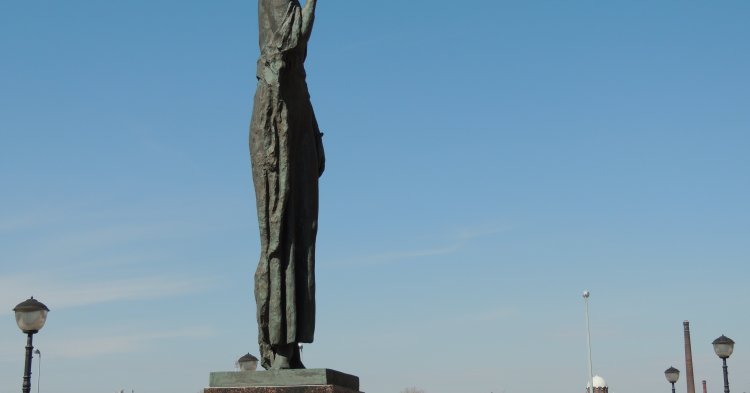Now regarded as Russia’s foremost female poet, Anna Akhmatova’s literary career started in the early 1900s in St. Petersburg, where she worked with a loosely-affiliated group of writers calling themselves the “Acmeists”, after the Greek word ákmē, meaning “pinnacle”. Among those in the group were other famous poets such as Osip Mandelstam and Nikolay Gumilyov, who Akhmatova later married. These poets led a reaction against the vague, indulgent mysticism of the previous generation of Russian poets, forging a new standard of limpid, imagistic beauty as the Silver Age of Russian letters drew to a close.
The Russian revolutions and the birth of the Soviet Union changed everything for these writers. In 1921, Ahkmatova’s husband was executed on suspicion of participating in an anti-Bolshevik conspiracy. Other Acmeist writers were later exiled, killed, or sent to labor camps, leading to the dissolution of the group. Akhmatova only barely escaped arrest, but her son Lev was not so lucky: in 1938, he was arrested, and spent the next five years in the Gulag. And Akhmatova herself remained stigmatized and extensively surveilled, her books banned. Yet she never left Russia, preferring to stay in the Soviet Union instead of emigrating to Paris or the Americas like so many others. In Akhmatova’s mind, giving up her freedom was the price that she had to pay to stay in her homeland.
After Stalin’s death, Akhmatova’s reputation was slowly rehabilitated, to the point where she was both esteemed by Soviet literati and considered an unofficial leader of the dissident movement. Yet her most important works remained unpublishable until after her death in 1966. Her lyric cycle Requiem, in many ways a monument not only to the imprisonment of her son, but to all of those who suffered under Stalinism, was finally published in Russia only in 1989. Once aptly called a “tragic queen” by the philosopher Isaiah Berlin, her life is also a reminder of the courage and sacrifices required by artists living in autocratic environments.


Follow the comments: |
|
